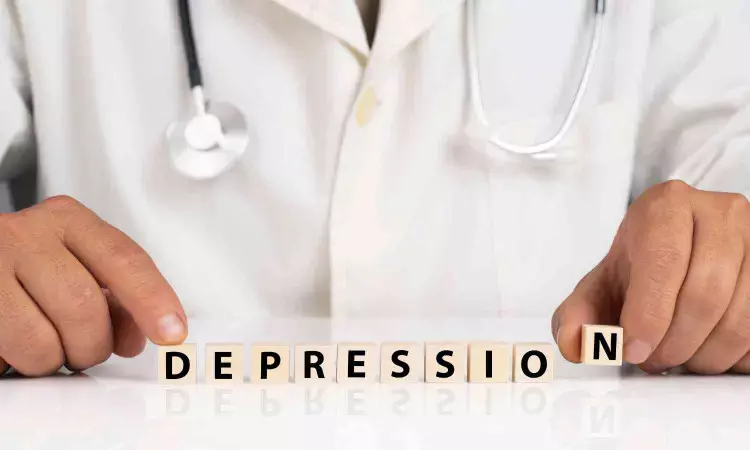- Home
- Medical news & Guidelines
- Anesthesiology
- Cardiology and CTVS
- Critical Care
- Dentistry
- Dermatology
- Diabetes and Endocrinology
- ENT
- Gastroenterology
- Medicine
- Nephrology
- Neurology
- Obstretics-Gynaecology
- Oncology
- Ophthalmology
- Orthopaedics
- Pediatrics-Neonatology
- Psychiatry
- Pulmonology
- Radiology
- Surgery
- Urology
- Laboratory Medicine
- Diet
- Nursing
- Paramedical
- Physiotherapy
- Health news
- Fact Check
- Bone Health Fact Check
- Brain Health Fact Check
- Cancer Related Fact Check
- Child Care Fact Check
- Dental and oral health fact check
- Diabetes and metabolic health fact check
- Diet and Nutrition Fact Check
- Eye and ENT Care Fact Check
- Fitness fact check
- Gut health fact check
- Heart health fact check
- Kidney health fact check
- Medical education fact check
- Men's health fact check
- Respiratory fact check
- Skin and hair care fact check
- Vaccine and Immunization fact check
- Women's health fact check
- AYUSH
- State News
- Andaman and Nicobar Islands
- Andhra Pradesh
- Arunachal Pradesh
- Assam
- Bihar
- Chandigarh
- Chattisgarh
- Dadra and Nagar Haveli
- Daman and Diu
- Delhi
- Goa
- Gujarat
- Haryana
- Himachal Pradesh
- Jammu & Kashmir
- Jharkhand
- Karnataka
- Kerala
- Ladakh
- Lakshadweep
- Madhya Pradesh
- Maharashtra
- Manipur
- Meghalaya
- Mizoram
- Nagaland
- Odisha
- Puducherry
- Punjab
- Rajasthan
- Sikkim
- Tamil Nadu
- Telangana
- Tripura
- Uttar Pradesh
- Uttrakhand
- West Bengal
- Medical Education
- Industry
Paternal Mental Distress Linked to Child Development, suggests study

A new study published in the Journal of American Medical Association showed that paternal mental distress during the perinatal period is a modifiable risk factor affecting child development. Further addressing fathers' mental health during the transition to parenthood could play a crucial role in improving outcomes for both parents and their children.
To reduce the effects of mental strain on the growing fetus and newborn, the perinatal period, from conception to 24 months after delivery, is especially crucial. Thus, this study was to present a meta-analytic synthesis of the literature on the relationship between the development of the children during the first 18 years of life and the paternal prenatal depression, anxiety, and stress.
For this analysis, studies published up until November 2024 were found using MEDLINE Complete, PsycINFO, Embase, CINAHL Complete, and the gray literature. English-language accessibility, a human sample, quantitative data, a longitudinal design, and the possession of a measure of the emotional discomfort experienced by the father during pregnancy and the development of his kids were among the requirements for inclusion.
A total of 48 cohorts with 674 effect sizes (including 286 unpublished associations) met the requirements for quantitative synthesis out of the 9572 studies that were found. To statistically summarize the relationships between father prenatal mental distress and child development, univariate random-effects models were employed.
The US National Institutes of Health's quality evaluation method for cross-sectional, cohort, and observational studies was used to evaluate the study's quality. The examination of the data was finished in January 2025. Global, adaptive, social-emotional, cognitive, physical, linguistic, and motor development in children over the first 18 years of life were the main results.
Poorer global (r = -0.12; 95% CI, -0.22 to -0.01), social-emotional (r = 0.09; 95% CI, 0.07-0.11), cognitive (r = -0.07; 95% CI, -0.13 to -0.01), language (r = -0.15; 95% CI, -0.25 to -0.05), and physical (r = 0.04; 95% CI, 0.00-0.08) development in offspring were all linked to paternal perinatal mental distress.
There was no proof of motor or adaptive results. Thus, associations were stronger for postnatal mental anguish than for prenatal mental distress, indicating that a father's mental health may have a greater direct impact on the growing kid after birth.
Overall, based on the data from this comprehensive review, father mental anguish may be able to be changed to predict a child's growth. Preventative treatments that support dads during the transition to parenting and advance the health and well-being of next-generation kids should focus on reducing mental distress in fathers during pregnancy.
Source:
Le Bas, G., Aarsman, S. R., Rogers, A., Macdonald, J. A., Misuraca, G., Khor, S., Spry, E. A., Rossen, L., Weller, E., Mansour, K., Youssef, G., Olsson, C. A., Teague, S. J., & Hutchinson, D. (2025). Paternal perinatal depression, anxiety, and stress and child development: A systematic review and meta-analysis: A systematic review and meta-analysis. JAMA Pediatrics. https://doi.org/10.1001/jamapediatrics.2025.0880
Neuroscience Masters graduate
Jacinthlyn Sylvia, a Neuroscience Master's graduate from Chennai has worked extensively in deciphering the neurobiology of cognition and motor control in aging. She also has spread-out exposure to Neurosurgery from her Bachelor’s. She is currently involved in active Neuro-Oncology research. She is an upcoming neuroscientist with a fiery passion for writing. Her news cover at Medical Dialogues feature recent discoveries and updates from the healthcare and biomedical research fields. She can be reached at editorial@medicaldialogues.in
Dr Kamal Kant Kohli-MBBS, DTCD- a chest specialist with more than 30 years of practice and a flair for writing clinical articles, Dr Kamal Kant Kohli joined Medical Dialogues as a Chief Editor of Medical News. Besides writing articles, as an editor, he proofreads and verifies all the medical content published on Medical Dialogues including those coming from journals, studies,medical conferences,guidelines etc. Email: drkohli@medicaldialogues.in. Contact no. 011-43720751


